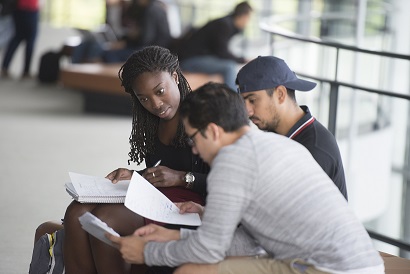
Analytics & Insights: Experiential Learning Through Discovery
Experiential learning has gained popularity among business schools nationwide, with many programs focusing on a consultancy-like model where students apply their knowledge to a business challenge at a firm with some light guidance from faculty.
This approach often leads to one of two problems. First, bright students are often attracted to programs that will be a great learning experience and will push them outside of their comfort zone, which means they may not necessarily have the skill set to address the task at hand, or they make lack familiarity with the industry. In these cases, the resulting recommendations from students may be impractical, unaffordable or lack strategic alignment, thereby creating little to no value for the firm. The second issue arises when students are matched appropriately to the firm based on relevant skills or experience and as a result, the firm gets “free consulting” but the students’ learning experience is diminished. In both scenarios, the programs often fail to create value for both the students and the firms simultaneously.
At SOM, the Center for Customer Insights (YCCI) approaches experiential learning a bit differently than most. While access and exposure to Fortune 100 companies is a central feature, YCCI faculty and staff scope the business challenge first and then design a mini-curriculum that focuses on teaching students new, highly relevant frameworks and skills that can then be immediately applied to the challenge at hand. Lecturer Treeny Ahmed described the process, “After we sit down with the company to understand their business challenge, I’ll sit down with the advising senior faculty for the course and discuss what principles from their research in Behavioral Science and Big Data may be relevant for the problem at hand. This is done before the students even learn about the project.”
Known formally as MGT 650: Customer Insights and Applications, but colloquially as “YCCI Discovery Projects,” YCCI’s experiential learning program pairs teams of MBA students with Fortune 500 companies such as IBM, Google, PepsiCo. and Viacom to create innovative solutions for real-world marketing problems while introducing invaluable skills to future marketing practitioners. During these 14-week projects, students are immersed in consumer research and insights generation that typically culminates is the design and test of go-to-market concepts that may include, for examples, ideas for messaging, packaging, promotions, and new product innovation.
 Typically, the projects all start with a lecture on Yale’s foundational framework for understanding the drivers behind consumer decision making. The course also incorporates other more tactical lectures on topics such as new research methods, insights generation and writing, and the behavioral science of survey design. As Professor Ravi Dhar says, “Students learn to approach a problem as both a telescope and a microscope, using both a top-down and bottoms-up lens.”
Typically, the projects all start with a lecture on Yale’s foundational framework for understanding the drivers behind consumer decision making. The course also incorporates other more tactical lectures on topics such as new research methods, insights generation and writing, and the behavioral science of survey design. As Professor Ravi Dhar says, “Students learn to approach a problem as both a telescope and a microscope, using both a top-down and bottoms-up lens.”
Determining what stimuli to test after primary and secondary research can be an important part of the process, as faculty, students, and company liaisons seek to identify which ideas seem most promising, while also being feasible. Students brainstorm tactical ideas that utilize the insight and then develop hypotheses for what they think will happen. Their ideas are often tested using the firm’s current marketing tactics or messages as a control. An A/B design applies academic rigor to the approach to ensure that the findings are not biased by what respondents may have already seen. The students then utilize the skills they learned in the core curriculum to analyze the resulting consumer data using statistical software. Meryl Breidbart, SOM class of 2020 and current Discovery Projects student, differentiates the experience from other courses that work with a corporate affiliate partner. “You not only get to work with real clients but actually get to test out insights and make recommendations. In my other classes, the project typically ends with suggestions for what to test, so Discovery stands out as a more serious and more valuable course.”
Students are not only learning the theories and methodologies behind this type of testing but also the practical applications of testing and data analysis is a way that equips them to be better marketers. Max Dworin, SOM class of 2020 and Discovery Projects Fellow, found his experience with the course invaluable during his summer internship with a well-known CPG company. “I was tasked with launching a new direct-to-consumer product, and I cannot even begin to tell you how many times I tapped into my YCCI toolkit—everything from consumer research to message testing—to pull it off. [My employer] is a world-class marketing company and the stakes were high, but I felt completely prepared.”
One of the distinguishing components of this course is the collaborative relationship between faculty and students as they move through testing, seeing what works and what doesn’t and determining how to tweak each test organically to refine results. As founding professor Ravi Dhar explains, “Hypothesis testing is much more than just testing ideas. These are high-level statistical techniques being taught and applied in a way that surpasses other courses of this kind."
Due in large part to the rigorous collaborative component of the test-and-learn phase of Discovery Projects, there continues to be an enthusiastically positive response from course alumni and partner firms. As Ms. Breidbart succinctly and eloquently states, “I feel ownership over the work that I’m doing. This isn’t just busy work that is done to demonstrate where you should fall on the grading curve. The work for this class helps companies perform better and, in turn, will make you a better thinker.”
